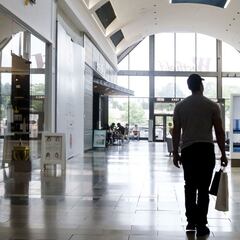When is the third Florida tax-free weekend of 2021? Dates and discounted products
Florida has extended the annual 'back-to-school' tax-free period to allow more time for parents to pick up a deal on clothing, school supplies and even computers.


To help boost the state’s pandemic-hit economy in 2021, Florida has revamped its annual tax-free holidays to stimulate greater spending. Earlier this year the ‘Freedom Week’ initiative attempted to encourage spending as the state’s stores were able to reopen, and another is on the way later this month.
For parents worrying about the cost of back-to-school shopping, a new 10-day shopping holiday will run from 31 July – 9 August with considerable reductions on a variety of products needed to prepare for the new school year. Shoppers will save Florida’s 6% state sales tax, as well as any applicable local tax.
Florida tax-free back-to-school initiative
Usually the state provides a back-to-school tax weekend, giving parents the chance to grab a deal over the course of three days. However for 2021 that is being extending to 10 days; from 12:01 am on 31 July, through 11:59 p.m. on 9 August.
The tax-break only applies to items that the state considers children will need to go school. As a general rule that includes the following items, although there are some exceptions which can be found on the Florida Department of Revenue website:
- Clothing and apparel, up to a maximum value of $60 per item
- School supplies, up to a maximum value of $15 per item
- Personal computers and related accessories, although only the first $1,000 is eligible for the tax exemption
Bear in mind that the value limits only relate to each individual item, so you can claim multiple children's jackets worth $50 as tax-free.
Consumer confidence grows in Florida
Despite these efforts to encourage further spending from Floridians it appears that state residents are already growing in confidence as the economic recovery continues. The state’s consumer sentiment index grew in June with a 1.5 point increase.
Related stories
Then index takes five separate signifiers of consumer confidence to judge economic activity in the state. The research shows that residents are even more likely to decide to buy what is considered a ‘big-ticket item’, such as a car or piece of furniture. However it also suggests that this sentiment was divided across different demographics, with those older than 60 reporting less favourable views.
Hector H. Sandoval, director of the Economic Analysis Program at UF’s Bureau of Economic and Business Research, said of the findings: “Overall, Floridians are more optimistic in June. Nonetheless, consumer confidence has remained mostly unchanged over the past months. Looking ahead, we expect consumer sentiment to keep recovering slowly in the months ahead.”

